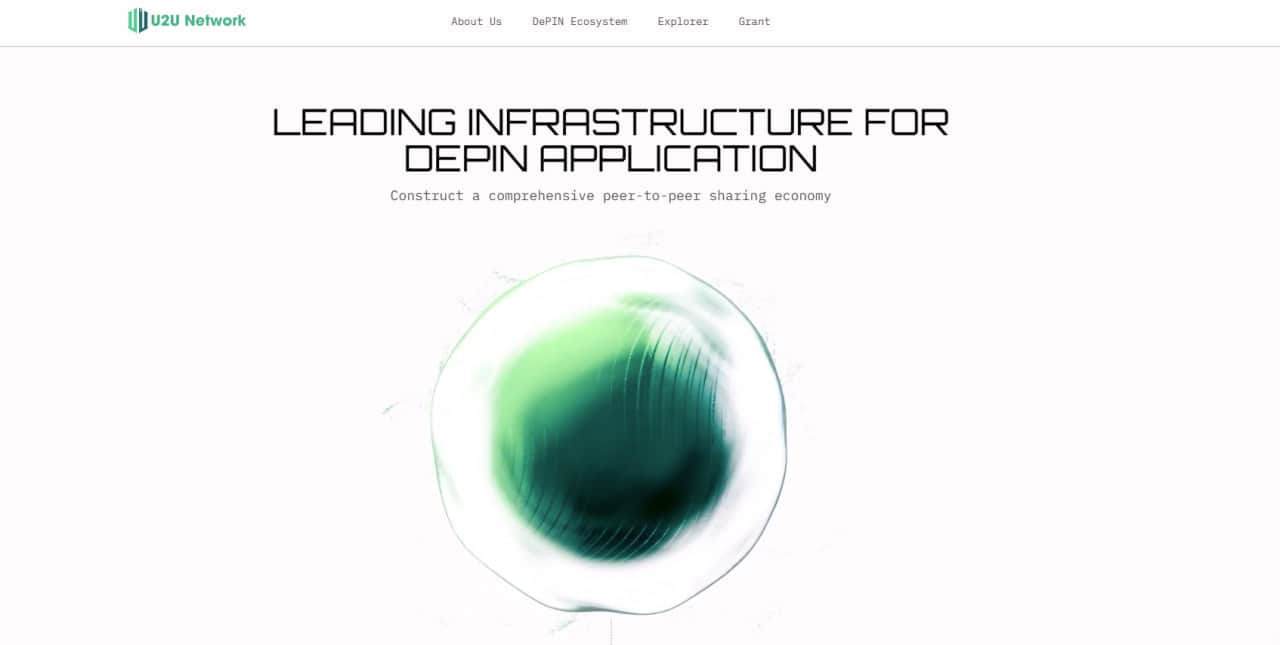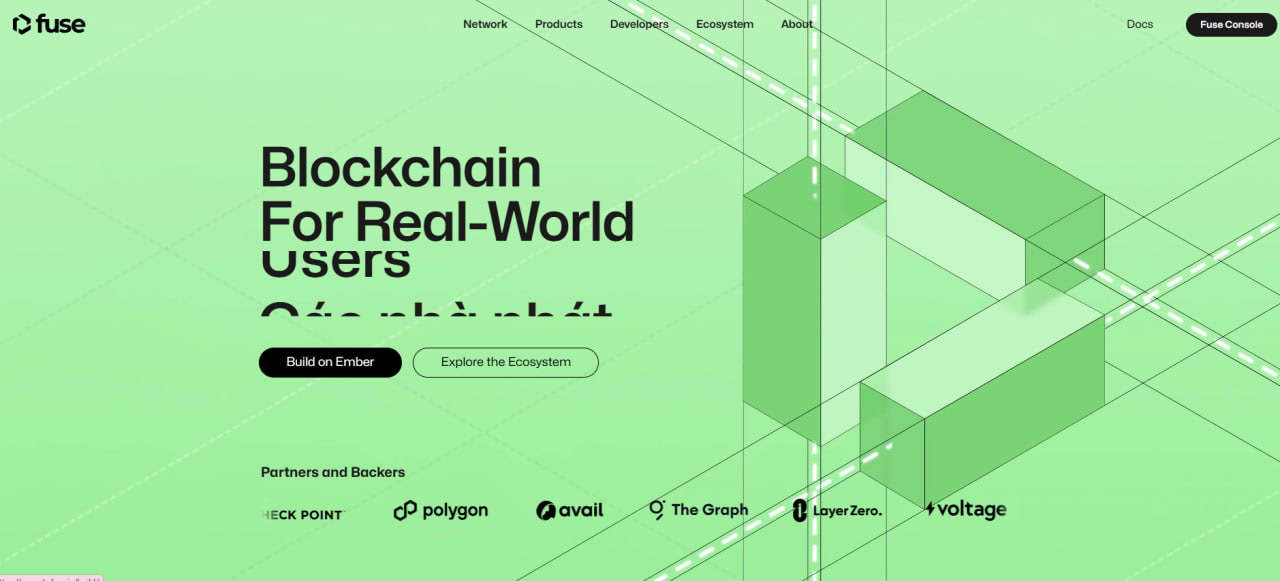Top 3 Upcoming Node Sale Presales: Mawari, U2U and Fuse Detailed Review
The rise of node sale presales is transforming how investors join blockchain growth. Instead of chasing tokens, users now secure validator rights that shape decentralized infrastructures.
Among the strongest upcoming presales of 2025 are Mawari, U2U, and Fuse, each representing a different vision of performance, decentralization, and long-term stability.
These projects combine real infrastructure with tokenized incentives, offering a new balance between speculation and network utility. Below is an IRU-based breakdown to guide your next move.
Comparison Overview
| Criteria | Mawari | U2U (Unicorn Ultra) | Fuse |
|---|---|---|---|
| Core Vision | XR Streaming DePIN | Hybrid DAG + EVM | Business Infrastructure |
| Funding Raised | 17.3M USD | 23.8M USD | 0.6M USD |
| Node Sale Status | Upcoming | Upcoming | Upcoming |
| Token Launch | Pending | Live (Dec 2024) | Live |
| Risk Level | High | Medium | Low |
| Upside Potential | Very High | High | Moderate |
The table helps you quickly understand how each project positions itself in the 2025 node presale market from innovation to risk and scalability.
Mawari Node Sale The DePIN Gateway for 3D Streaming
Mawari leads the next generation of decentralized networks through its XR streaming model powered by node operators. Backed by over 17 million dollars from Animoca Brands and Draper Dragon, Mawari positions itself as a DePIN infrastructure linking blockchain with immersive media.
Early participants can register as Guardian Nodes, managing 3D content distribution and network performance. Each node contributes to data transmission, bandwidth allocation, and reward efficiency directly tied to ecosystem activity.
By integrating GPU-based nodes and Arbitrum Orbit for scaling, Mawari aims to bridge digital media delivery with Web3 utility. Its success could set a new technical standard for metaverse-grade infrastructure.
Pros
- Strong VC backing from Animoca Brands and Draper Dragon.
- First DePIN model focused on XR and immersive environments.
- GPU node scalability improves network power and responsiveness.
- Early mover advantage in 3D streaming infrastructure.
Cons
- Complex integration between XR hardware and blockchain layers.
- High initial setup costs for node operators.
- Token generation event timeline remains unconfirmed.
U2U (Unicorn Ultra) Node Sale Hybrid DAG Meets EVM
U2U merges DAG scalability with EVM compatibility to form a flexible blockchain infrastructure for developers and enterprises. It has raised more than 23 million dollars, signaling strong institutional confidence ahead of its validator node sale.
Its architecture delivers fast consensus and low latency while preserving Solidity support. The hybrid structure creates a balance between speed, interoperability, and developer familiarity.
The project already launched its token in late 2024, offering staking and governance privileges to node participants. Transparency reduces speculative pressure and ensures traceable liquidity.
Pros
- Combines DAG speed with EVM compatibility for hybrid performance.
- Active ecosystem with a live token since 2024.
- Supported by over 23 million dollars in early funding.
- Provides staking and governance incentives for validators.
Cons
- Node sale schedule and allocation details still unreleased.
- Competes directly with other high-speed hybrid networks.
- Potential short-term token unlock pressure after sale.
Fuse Node Sale Stability and Business Adoption
Fuse offers reliability through an already-operational blockchain ecosystem focused on business integration and real-world utility. Having raised around 600,000 dollars in previous rounds, it aims to expand its validator network with a new presale phase.
Unlike speculative startups, Fuse already runs a functioning network with active partners. Its node sale targets existing holders and newcomers seeking steady staking income.
Fuse’s mature ecosystem lowers participation risk, appealing to investors prioritizing sustainability and predictable returns over short-term volatility.
Pros
- Proven mainnet with active validator participation.
- Real business integrations support organic adoption.
- Low-risk entry for conservative investors.
- Transparent staking reward system and reliable uptime.
Cons
- Lacks novelty compared to emerging DePIN or DAG projects.
- Modest fundraising history limits expansion potential.
- Slower growth due to competition in Layer 1 ecosystems.
Supplementary View Risks and Considerations for Node Sales
Node sale presales offer significant upside but also carry technical and operational risks. Investors must evaluate node setup complexity, uptime requirements, and revenue-sharing structures.
Unlike token presales, participation demands both financial commitment and operational management. Nodes that fail to stay active risk losing performance rewards. Diversifying across multiple presale networks can help balance exposure and build long-term portfolio resilience in the infrastructure sector.
Conclusion
Node sale presales redefine early blockchain participation by allowing investors to gain validator access before network expansion. Mawari represents innovation in immersive infrastructure, U2U balances technical progress with readiness, while Fuse provides stability and maturity.
Your best choice depends on individual risk tolerance and operational capacity. Technical users may lean toward Mawari, governance-oriented investors may choose U2U, and passive holders can rely on Fuse. As 2025 unfolds, these three networks stand at the forefront of decentralized infrastructure evolution, combining community participation, scalable performance, and sustainable value growth.
Frequently Asked Questions (FAQs)
What are node sale presales in crypto?
Node sale presales allow investors to purchase validator or operator rights before a blockchain network goes live. They differ from token sales by giving real operational roles tied to network performance. The model rewards users who maintain uptime and contribute to decentralized growth.
Which node sale is best for beginners in 2025?
Fuse is the most beginner-friendly because it already operates a live network with a stable ecosystem. Its validator structure requires lower capital and technical setup compared to Mawari or U2U, making it suitable for first-time participants seeking predictable rewards.
Are node sales riskier than regular token sales?
Yes, because node sales involve both investment and operational responsibilities. While token buyers hold passive assets, node participants must maintain infrastructure to earn rewards. However, successful participation often brings higher long-term yields and deeper ecosystem involvement.
| Disclaimer: The information on this website is for informational purposes only and does not constitute financial or investment advice. Cryptocurrency markets are volatile, and investing involves risk. Always do your own research and consult a financial advisor. |





